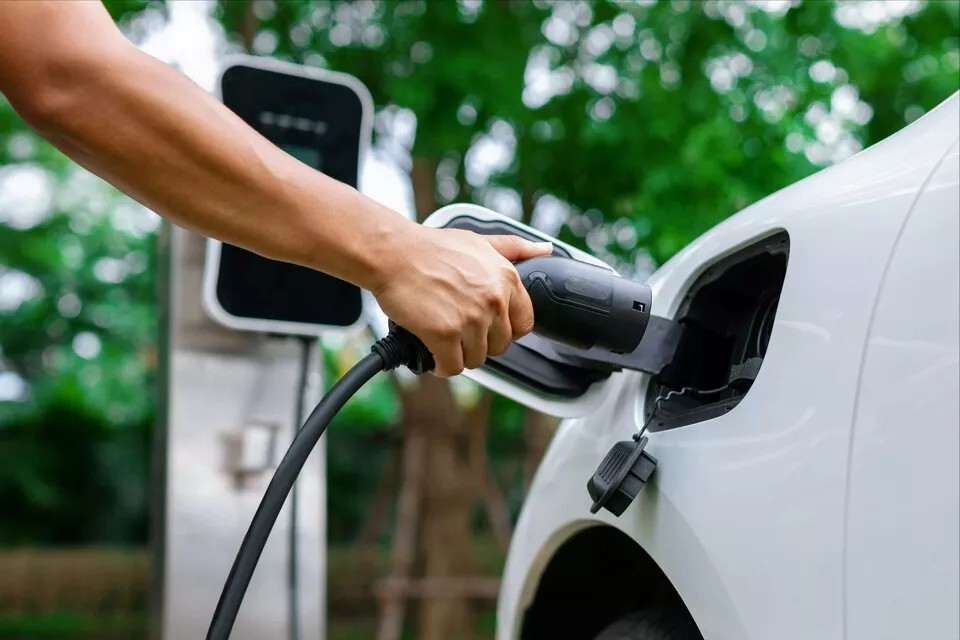The United Kingdom is undergoing a significant transformation in personal transport, with electric mobility becoming increasingly central to the nation’s infrastructure. This shift creates new demands for reliable power solutions at both residential and commercial properties across the country.
Professional installation services offer comprehensive support that covers initial site assessment through to equipment selection and final setup. These services ensure that electric vehicle owners receive optimal performance and complete peace of mind. The expertise provided guarantees adherence to all UK electrical regulations and safety standards.
Demand for these specialised installations has grown substantially as more drivers transition away from traditional petrol and diesel vehicles. From individual homes to large commercial complexes, tailored approaches address diverse needs and usage patterns effectively.
The integration of smart technology, available government grants, and innovative payment systems makes electric vehicle ownership more accessible and cost-effective. Providers deliver end-to-end solutions including consultation, installation, and ongoing technical support for a seamless experience.
Key Takeaways
- The UK market for electric vehicle power infrastructure is expanding rapidly.
- Professional installation ensures safety, compliance, and optimal performance.
- Services are tailored for both residential properties and commercial premises.
- Expert assessments cover site evaluation and appropriate equipment selection.
- Smart technology integration and government incentives enhance accessibility.
- Comprehensive support includes maintenance and ongoing technical assistance.
Overview of the UK EV Charging Landscape
A quiet revolution is taking place on British roads as zero-emission vehicles become increasingly commonplace. This shift demands robust infrastructure to support millions of electric cars nationwide.
The network of public power points has expanded dramatically across the country. Drivers now enjoy greater accessibility to replenishment facilities in urban and rural locations alike.
Current Market Trends in EV Charging
Market analysis reveals a clear preference among motorists for home-based solutions. Many view residential installations as the primary method for vehicle replenishment due to convenience and cost savings.
Public infrastructure continues to grow rapidly. Rapid chargers now appear at motorway services and retail car parks, supporting longer journeys effectively.
Government Initiatives and Incentives
Government schemes play a crucial role in accelerating adoption rates. Various grants support home charger installations and workplace charging schemes nationwide.
The commitment to phase out petrol and diesel vehicles creates urgency for robust infrastructure. Regulatory frameworks ensure payment interoperability and grid integration standards.
| Charging Type | Typical Location | Speed Range | Average Cost (Oct 2025) |
|---|---|---|---|
| Slow Charging | Residential Areas | 3-7 kW | Variable (Home Tariffs) |
| Fast Charging | Public Car Parks | 7-22 kW | 51p/kWh |
| Rapid Charging | Motorway Services | 50-350 kW | Premium Rates Apply |
Benefits of Innovative Charging Solutions
Choosing an electric car brings powerful economic and ecological advantages to UK drivers. These benefits make the transition from traditional fuels a smart decision for both your wallet and the environment.
Environmental and Economic Advantages
The environmental perks are significant. Innovative solutions cut carbon emissions and improve air quality. They also support the UK’s net-zero goals for a greener future.
Financially, the case is equally strong. Home charging for an electric vehicle offers substantial savings. For an average annual mileage of 7,100 miles, powering up costs about £151 using off-peak rates. A comparable petrol car would cost £1,015 to fuel.
This represents a potential annual saving of £865. The economic benefits extend beyond just fuel.
- Lower running costs make electricity far cheaper than petrol or diesel.
- Reduced maintenance is another key advantage, as electric cars have fewer moving parts.
- Smart technology allows owners to capitalise on cheaper off-peak electricity tariffs.
These factors combine with government incentives to create a compelling financial argument for electric car ownership. The advantages clearly highlight the value of modern charging infrastructure.
Installation Process and Time Efficiency
Homeowners seeking to power their electric vehicles benefit from streamlined installation processes that prioritise safety and convenience. Professional services ensure every installation job meets strict UK electrical standards.
Expert Installation Procedures
The installation service begins with a comprehensive site survey. Qualified electricians assess electrical capacity and determine optimal equipment placement.
They evaluate existing infrastructure for necessary upgrades. This careful planning ensures the charging system operates safely and efficiently.
Installers handle all cable routing with precision. They follow British Standards for protection and weatherproofing of outdoor sections.
Installation Time: Typically Around 4 Hours
Most residential installations complete within approximately four hours. This timeframe allows for thorough testing and configuration.
The efficient job minimises household disruption. Homeowners can begin using their new charging point immediately after completion.
Professional preparation enhances time efficiency. Installers arrive with all necessary materials to complete the work without delays.
Post-installation support continues for several months. This ensures any questions receive prompt attention, helping optimise charging routines.
Cost Efficiency and Savings with EV Charging
For many UK drivers, the decision to install a home charging point is driven by the compelling long-term savings on fuel expenses. The price difference between powering up at home versus using public infrastructure is substantial.
Smart energy tariffs unlock the greatest value. They allow owners to capitalise on lower electricity prices during off-peak hours, typically overnight.
Comparing Public and Home Charging Rates
The average cost for public charging at slow or fast points sits around 51p per kWh. In contrast, a dedicated home tariff can reduce this to just 7p per kWh.
This represents a dramatic saving of 86%. Even compared to a standard variable tariff of 25.73p per kWh, the smart rate offers a 73% reduction.
| Charging Type | Average Price per kWh | Best For |
|---|---|---|
| Public Charging (Slow/Fast) | 51p | Top-ups during journeys |
| Standard Home Tariff | 25.73p | Basic convenience |
| Smart Off-Peak Home Tariff | 7p | Maximum cost efficiency |
Annual Savings on Fuel and Charging Costs
These lower rates translate into significant annual savings. Powering an average electric car for 7,100 miles costs approximately £151 with a smart tariff.
Fuelling a comparable petrol car for the same distance costs about £1,015. This results in an annual saving of £865.
The cumulative effect over a full year makes home charging a financially astute choice. It reinforces the economic case for residential installations.
High-Quality Home Charging Solutions
The quality of home charging equipment plays a crucial role in ensuring reliable daily vehicle replenishment. Premium products combine robust construction with advanced safety features for long-term performance.
Customised Installations for Residential Needs
Every property has unique requirements for electric vehicle power solutions. Professional installers assess electrical capacity and parking arrangements to recommend optimal equipment.
They offer various charger types to suit different home layouts. Wall-mounted units provide space-efficient solutions, while pedestal options work well for properties without suitable wall space.
Type 2 connectors represent the UK standard for compatibility. These interfaces ensure seamless connection with all modern electric cars and plug-in hybrids.
Cable length flexibility addresses diverse property configurations. Quality charging cables up to 10 metres accommodate distant parking locations effectively.
The selection process considers vehicle type, daily mileage, and budget. Expert guidance ensures homeowners choose products that deliver optimal performance and value.
Weatherproof enclosures and durable materials withstand challenging British conditions. These features guarantee reliable operation throughout seasonal changes.
Infrastructure Expansion Across Europe
The expansion of high-power charging facilities across European countries has transformed cross-border electric vehicle travel. Comprehensive networks now span 24 nations from Scandinavia to the Mediterranean.
Strategic placement ensures charging points appear approximately every 120 kilometres along major transport corridors. This infrastructure supports confident long-distance journeys for drivers.
Accessibility at High-Power Charging Points
Modern facilities offer exceptional accessibility features. Multiple charging bays prevent congestion during peak travel times.
Real-time availability information through mobile applications helps drivers plan stops efficiently. Contactless payment options provide seamless transaction experiences.
High-power stations deliver 150kW to 350kW capabilities. These significantly faster speeds replenish substantial battery capacity in 20-30 minutes.
| Payment Method | Annual Fee | Price per kWh | Best For |
|---|---|---|---|
| Power Subscription | £104.99 | 43p | Frequent long-distance travellers |
| Motion Subscription | £54.99 | 53p | Regular European journeys |
| App-Based (No subscription) | No annual fees | 75p | Occasional international travel |
| Contactless Payment | No annual fees | 79p | One-off or infrequent use |
Subscription models eliminate transaction fees for each session. Annual plans offer the best value for regular travellers across Europe.
Flexible payment options accommodate all usage patterns. Drivers can choose plans matching their travel frequency and budget requirements.
Advanced Charging Technology and Innovation
Modern charging technology continues to evolve at a rapid pace. These innovations focus on enhancing user convenience, improving efficiency, and ensuring robust safety.
One significant advancement is Plug & Charge capability. This technology allows for automatic authentication and payment when the user connects the cable to their vehicle. It removes the need for separate cards or apps, streamlining the entire process.
Smart chargers represent another leap forward. They offer connectivity for remote monitoring and scheduling via smartphone applications. This enables users to optimise their charging sessions based on time-of-use electricity tariffs.
Innovation also extends to hardware design. Today’s charging cables are more durable and flexible, built to withstand daily use and varied British weather conditions. The universal Type 2 plug ensures compatibility across different vehicle models.
These advanced systems incorporate sophisticated power management. They intelligently adjust charging power delivery based on grid capacity and user preferences. This helps to balance cost-efficiency with performance.
- Enhanced safety features include comprehensive monitoring for faults and temperature control.
- Renewable energy integration allows systems to prioritise solar or wind power when available.
- Future-ready capabilities like bidirectional power flow can turn vehicles into mobile energy assets.
The combination of these features makes contemporary chargers intelligent partners in electric mobility. They offer a seamless, secure, and highly efficient experience for every driver.
Quality Assurance and Trusted Partnerships
Industry recognition and customer testimonials serve as powerful indicators of service excellence in the mobility sector. Leading providers like IONITY have earned prestigious awards, including the ‘Efficiency King’ title and first place for charging point quality from AUTO BILD.
Customer satisfaction ratings demonstrate exceptional service delivery. Between January and August 2025, 85% of customers awarded 5-star ratings to their service providers. This reflects outstanding performance in installation quality and ongoing support.
Industry Accolades and Customer Testimonials
Positive feedback consistently highlights several key factors. Customers appreciate fast delivery times, excellent communication, and responsive customer service. These elements combine to create exceptional user experiences.
The company Jones And Baker Ltd exemplifies this commitment to quality. They maintain strong industry partnerships while ensuring rigorous testing protocols. Their approach to comprehensive quality assurance testing validates equipment performance and safety standards.
Proven Reliability in Fast and Efficient Charging
Performance metrics provide concrete evidence of system reliability. Uptime statistics and satisfaction ratings demonstrate consistent service delivery across diverse scenarios. This proven reliability builds confidence among electric vehicle owners.
Quality partnerships extend beyond initial installation to include ongoing maintenance and technical support. This ensures charging systems continue to perform optimally throughout their operational lifespan, delivering peace of mind to customers.
Efficiency and Performance Metrics
Technical efficiency measurements provide critical insights for electric vehicle owners. These metrics help drivers understand how effectively their charging systems convert electrical energy into vehicle range.
Charging Rates, kWh Consumption and Peak Performance
Home installations typically deliver between 3.6kW and 7.4kW for single-phase supplies. The actual rate depends on the vehicle’s battery management system and electrical characteristics.
A standard 7kW home charger demonstrates strong performance. It can replenish approximately 23 miles of range per hour based on average car efficiency of 0.306 kWh per mile.
Peak performance occurs during off-peak periods when grid demand lowers. This timing optimises both charging speed and cost efficiency for owners.
Multiple factors influence charging power delivery. These include the charger’s capacity, vehicle specifications, and battery temperature. Rates typically reduce as batteries approach full capacity.
Smart applications provide real-time visibility into energy consumption. This helps owners optimise their charging behaviours for maximum savings.
Understanding these metrics enables informed decisions about schedules and tariff selection. This knowledge maximises both convenience and financial benefits for electric vehicle owners.
Comprehensive EV Charging: Home and Commercial Services
The demand for comprehensive power solutions spans both residential and commercial sectors across the UK. These services are tailored to meet distinct needs, from simple home installations to complex multi-point business deployments.
Professional providers manage the entire project lifecycle. This ensures every installation meets specific operational requirements and regulatory standards.
Robust Solutions for Business and Residential Markets
Home installations focus on convenience and cost-effectiveness. They offer seamless integration with a property’s existing electrical system.
The right car charger and charging cable are selected for each unique home layout. This guarantees reliable daily use for the vehicle owner.
Commercial services are far more extensive. They often include multiple charging points with sophisticated load management systems.
These systems distribute available electrical capacity intelligently. This prevents grid overload while maximising the number of vehicles that can charge at once.
For businesses, robust solutions incorporate payment processing and user authentication. Reporting dashboards integrate with fleet management software for larger organisations.
Jones And Baker Ltd delivers expert solutions across both markets. The company provides a full range of quality products and professional installation service.
Their expertise covers everything from initial consultation to ongoing support. This gives clients confidence their infrastructure will perform reliably.
Technical Support and Customer Service
Professional assistance distinguishes superior electric mobility services from basic installations. Comprehensive support ensures customers receive uninterrupted power solutions throughout their equipment’s lifespan.
Direct Assistance from Experts
Jones & Baker provides thorough pre-installation consultations. Their experts assess site requirements and recommend appropriate equipment for each unique situation.
During installation, professional teams coordinate scheduling and manage site-specific challenges. They ensure customers understand system operation and safety features upon handover.
Ongoing Maintenance and Customer Guidance
Jones & Baker offers continuous maintenance support for long-term reliability. This includes routine system checks, software updates, and proactive monitoring.
Troubleshooting assistance helps resolve issues before they impact availability. Customers benefit from responsive communication channels and comprehensive documentation.
| Support Channel | Availability | Response Time | Best For |
|---|---|---|---|
| Telephone Helpline | Business Hours | Under 15 minutes | Urgent technical issues |
| Email Support | 24/7 | Within 4 hours | Detailed queries |
| Online Knowledge Base | Always available | Immediate | Common questions |
| Mobile App Integration | 24/7 | Real-time alerts | Remote monitoring |
Technical support capabilities include remote diagnostics for smart systems. This allows teams to identify configuration issues without site visits.
Service level agreements define response times for commercial installations. This ensures business customers receive priority support to minimise downtime.
Sustainable and Future-Ready Charging Solutions
Future-ready charging solutions are designed to accommodate emerging technologies while supporting the UK’s decarbonisation goals. These systems integrate renewable energy sources and prepare for advancements like bidirectional power flow.
Sustainable infrastructure aligns with net-zero commitments by facilitating clean transportation. Integration with solar panels and home battery storage allows vehicle owners to maximise self-generated electricity consumption.
Smart charging efficiency optimises grid interaction by shifting demand to periods of high renewable generation. This approach supports grid stability while providing cost savings through time-of-use tariffs.
Bidirectional technology will transform electric vehicles into mobile energy assets. Vehicles could provide grid services and home backup power during outages.
Future-ready designs incorporate software upgradeability and modular hardware. This ensures compatibility with evolving standards without complete equipment replacement.
Many drivers now view electric vehicle ownership as participation in a sustainable energy ecosystem. This perspective recognises the broader environmental benefits beyond personal transportation.
Innovations in Charging App Integration
Digital innovation has fundamentally reshaped how drivers interact with power infrastructure for their vehicles. Mobile applications now consolidate multiple functions into single, intuitive platforms.
These digital tools transform the entire experience from planning to payment. They provide comprehensive management capabilities that simplify daily routines.
User-Friendly Interfaces for Seamless Charging
Modern applications prioritise clarity and ease of use. Clean layouts and logical navigation ensure drivers can access features quickly.
Real-time availability information eliminates uncertainty about station status. Drivers can see which points are operational before arriving.
Route planning integration suggests optimal stopping locations. This feature considers distance, charging speed, and personal preferences.
Smart Payment and Subscription Options
Payment flexibility meets diverse user needs. Applications support various methods including pay-per-session and subscription models.
Monthly plans often reduce per-kWh rates for frequent users. They typically eliminate individual transaction fees for better value.
The Plug & Charge technology represents the pinnacle of convenience. It automatically authenticates vehicles when users connect the plug.
Roaming agreements enable single-account access to thousands of locations across Europe. This eliminates the need for multiple provider accounts.
Advanced features include usage analytics and cost tracking. These help drivers optimise their habits and maximise savings.
Conclusion
The journey towards electric mobility in the UK is now supported by a mature and accessible infrastructure. This landscape offers robust solutions for both homes and businesses, ensuring a smooth transition for drivers.
Professional services deliver end-to-end support, from expert installation to reliable ongoing maintenance. This provides owners with complete peace of mind throughout their vehicle’s lifecycle.
The compelling economic case is clear, with significant savings on fuel compared to petrol or diesel cars. Environmental advantages and government incentives further strengthen the argument for making the switch.
At the end of the day, powering an electric car in Britain is practical, economical, and well-supported. The comprehensive framework in place makes ownership a straightforward and beneficial choice for the future.
FAQ
What is the average cost to install a home charger?
The price for a home charger installation can vary depending on the specific unit and property requirements. Many customers benefit from government grants, such as the EV Chargepoint Grant, which can significantly reduce the upfront cost. It is best to request a personalised quote for an accurate figure.
How long does a typical home installation take?
A professional installation for a domestic charge point is typically completed within around four hours. The team from Jones & Baker Ltd ensures the job is done efficiently with minimal disruption, focusing on quality and safety.
Are home charging solutions more cost-effective than using public points?
Yes, charging an electric vehicle at home is almost always cheaper than using public infrastructure. Domestic electricity rates, especially with off-peak tariffs, offer substantial savings on fuel costs compared to the fees at public charging points over a year.
What kind of support is available after installation?
Companies like Jones & Baker provide comprehensive customer service and technical support. This includes guidance on using the charger, troubleshooting via a dedicated app, and assistance with any maintenance needs to ensure long-term reliability.
Can I charge my car faster with a home unit compared to a standard plug?
Absolutely. A dedicated home charger delivers significantly higher charging power, often 7kW or 22kW, compared to a slow 3-pin plug. This means a full charge can be achieved overnight, providing convenience and efficiency for daily use.
What are the key features to look for in a charging cable?
When selecting a cable, consider its length, durability, and compatibility with your vehicle’s plug type (e.g., Type 2). A high-quality cable from a trusted supplier ensures safe, efficient power transfer and longevity.
How is the expansion of charging infrastructure progressing across Europe?
The network of public charging points is growing rapidly, with a strong focus on deploying high-power chargers along major routes. This expansion improves accessibility for drivers, making longer journeys across the continent more feasible.






